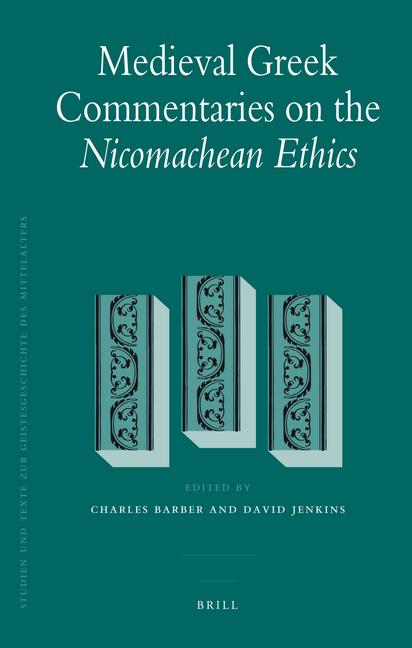Given the enduring importance of Aristotle s "Nicomachean Ethics," it is remarkable to find that there is no extensive surviving commentary on this text from the period between the second century and the twelfth century. This volume is focused on the first of the medieval commentaries, that produced in the early twelfth century by Eustratios of Nicaea, Michael of Ephesus, and an anonymous author in Constantinople. This endeavor was to have a significant impact on the reception of the "Nicomachean Ethics" in Latin and Catholic Europe. For, in the mid-thirteenth century, Robert Grosseteste translated into Latin a manuscript that contained these Byzantine commentators. Both Albertus Magnus and Bonaventure then used this translation as a basis for their discussions of Aristotle's book. Contributors are George Arabatzis, Charles Barber, Linos Benakis, Elizabeth Fisher, Peter Frankopan, Katerina Ierodiakonou, David Jenkins, Anthony Kaldellis and Michele Trizio.
Inhaltsverzeichnis
Preface Acknowledgements Abbreviations Classical Scholarschip in Twelfth-Century Byzantium The Literary, Cultural and Political Context for the Twelfth-Century Commentary on the Nicomacheau Ethics Aritotelian Ethics in Byzantium Neoplatonic Source-Material in Eustratios of Nicaea's Commentary on Book VI of the Nicomacheau Ethics Eustratios of Nicaea's 'Definition of being' Revisited Eustratios of Nicaea on the Separation of Art and Theology The Anonymous Commentary on Nicomacheau Ethics VII: Language, Style and Implications Michael of Ephesus on the Empirical Man, the Scientist and the Educated Man (In Ethica Nicomachea X and In de Partibus Animalium I) Some Observations on Michael of Ephesus' Comments on Nicomacheau Ethics X Bibliography Index












